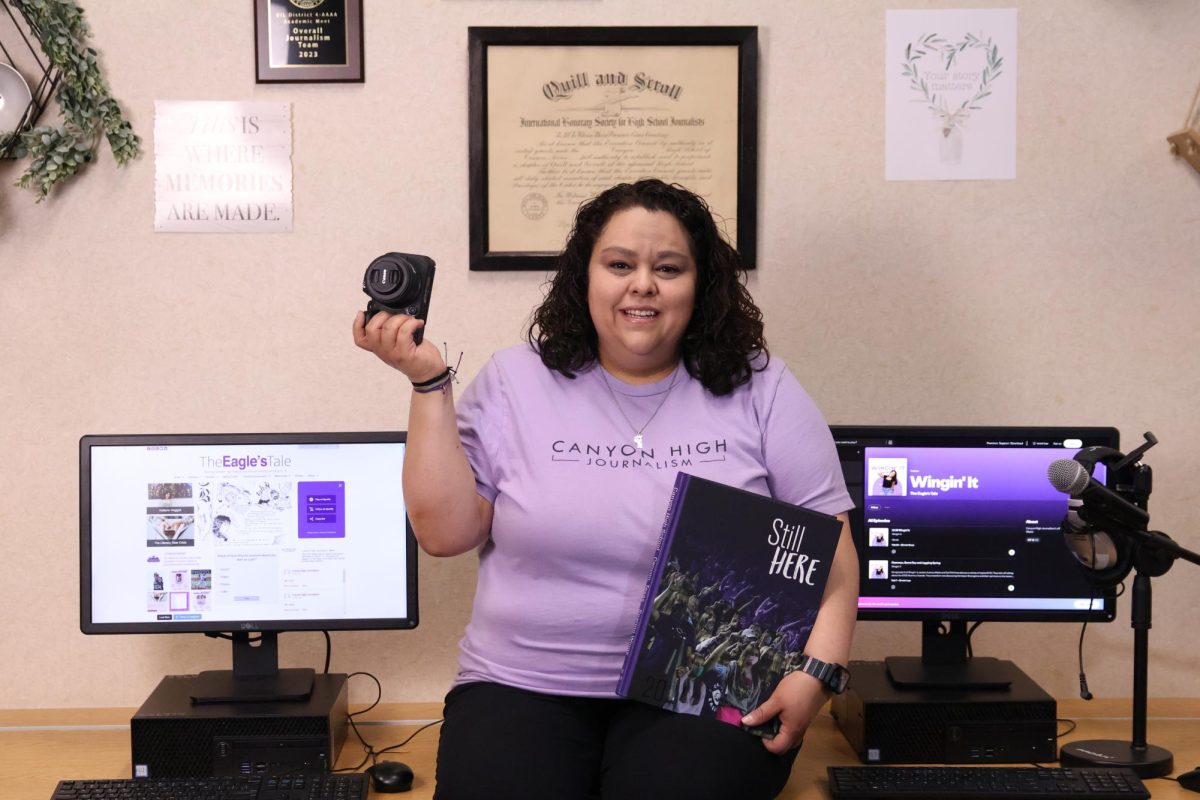Lying in her big warm bed, Ashley stares into the darkness of her bedroom listening to the music play softly in the background. Tired but unable to sleep, she glances at the clock only to be deceived by how much time had gone by. Two minutes had passed, though to her, it felt like hours.
Ashley is not a real person, but millions of teenagers go through this process every night before falling asleep.
An Eagle’s Tale survey shows that students get six to eight hours of sleep a night which sounds good, but www.kidshealth.org recommends eight and a half to more than nine hours a night.
According to www.sleepforscience.org, most studies show that the time teens sleep decreases even though they need more sleep than a child or adult would. Different factors, such as school or work, affect sleeping patterns in teenagers. Students who work more than twenty hours a week sleep less, are more sleepy during the day and drink more caffeine/alcohol. Students who do not get enough sleep are more vulnerable to catastrophic accidents, mood/behavior problems and have an increased risk to abusing drugs and alcohol.
Kidshealth.org also states that deficits in the sleep/wake cycle can lead to sleeping disorders. Among these disorders is Periodic Limb Movement. It causes a person to have involuntary arm and leg movements that wake them up. Another is Obstructive Sleep Apnea, in which case a person stops breathing temporarily during sleep. It is shown that people with enlarged tonsils are more likely to develop this disorder.
Insomnia, a more common disorder, causes its victims to have trouble falling or staying asleep. Many insomniacs only sleep four or fewer hours per night.
“I first noticed my insomnia about six years ago,” senior Charity Logan said. “I am taking medication for it but it is not working because I’m still only getting one to two hours of sleep a night.”
There are many causes of insomnia, but stress is the main one. If it continues longer than a month, doctors consider it to be a chronic disorder and prescribe medications to help a person sleep.
Sleep disorders can be caused by emotional problems, stress, diets, working habits, aging, physical illness, mental illnesses, drug and alcohol abuse. Medications can also cause sleeping disorders if used for long periods of time.
People with sleep deficits are most likely unable to concentrate, study/work effectively and are likely to suffer from emotional problems like depression.
“Sometimes it makes me very emotional and I have weeks where I will just crash from exhaustion,” Logan said. “It has not affected my grades or work though, I have learned to live with it.”






